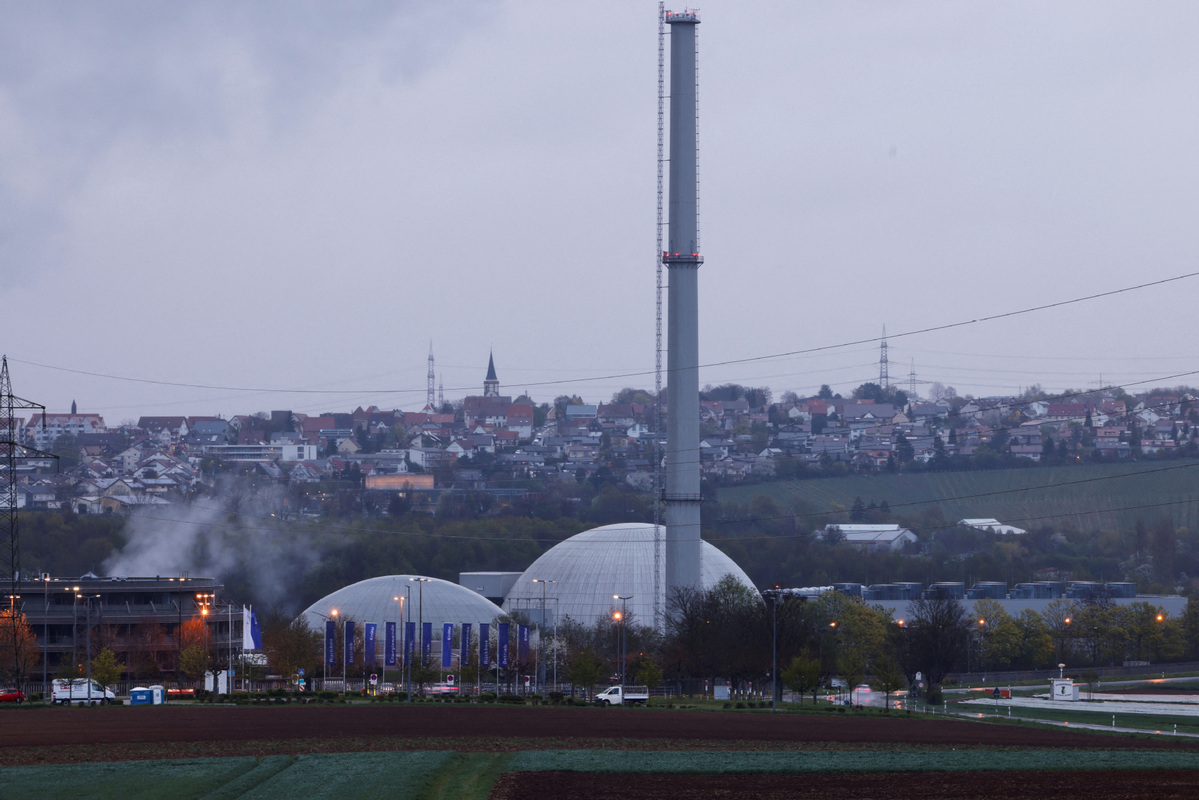Germany pulls plug on nuclear generation
By Julian Shea in London | China Daily Global | Updated: 2023-04-16 23:10

Germany has officially left the nuclear age after turning off its last three atomic energy facilities on Sunday, a decision that has drawn a mixed response across the country.
Ever since the height of the Cold War in the 1980s, Germany has had a strong anti-nuclear movement, and the decision to end its use of atomic energy was taken in 2011 by then-chancellor Angela Merkel, a physicist by training, in the aftermath of the Fukushima disaster in Japan.
This marked a policy U-turn after her government had previously approved the extension of the operational life of Germany's nuclear facilities.
The turning off of the Isar 2 complex in Bavaria, and other facilities in Emsland in Lower Saxony, and Neckarwestheim in the southwestern region of Baden-Wurttemberg, was supposed to happen at the end of 2022, but was put back because of the turmoil caused to international energy supplies by the Russia-Ukraine conflict.
"The risks of nuclear power are ultimately unmanageable," said Environment Minister Steffi Lemke, a member of the Green Party, which is part of Germany's ruling coalition government.
Last year, the three remaining nuclear plants supplied just 6 percent of Germany's energy, compared to 30.8 percent of power having been atomic in 1997.
Despite the move having generally been welcomed, with a target of 80 percent of energy coming from renewable sources by 2030, and Chancellor Olaf Scholz wanting "four to five wind turbines a day" to be installed, environmentally the picture is not entirely straight forward.
Germany is the largest emitter of carbon dioxide in the European Union, and has resorted to reviving some of its coal-fired power plants to make up any potential shortfall in gas supply, a decision branded as a mistake by environmental campaigner Greta Thunberg.
Markus Soeder, conservative state premier of Bavaria, called on states to be given the option to take responsibility for their own decisions, rather than being subject to one national policy.
"Until the crisis is over, and the transition to renewables succeeds, we must use every form of energy by the end of the decade," his ministerial office was quoted as saying in the Bild am Sonntag newspaper. "Bavaria is ready to take on this responsibility.
"While many countries in the world are even expanding nuclear power, Germany is doing the opposite. We need every possible form of energy. Otherwise, we risk higher electricity prices and businesses moving away."
There has also been opposition from within Scholz's own government, with Finance Minister Christian Lindner of the liberal FDP party calling for the three plants to stay active in reserve.
This would be technically and practically implausible, but with opinion polls showing that the issue of the nuclear turn-off is politically divisive, there is mileage to be gained in terms of public support by being seen to oppose the policy.
























